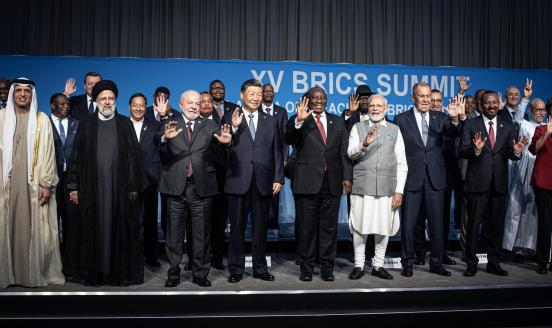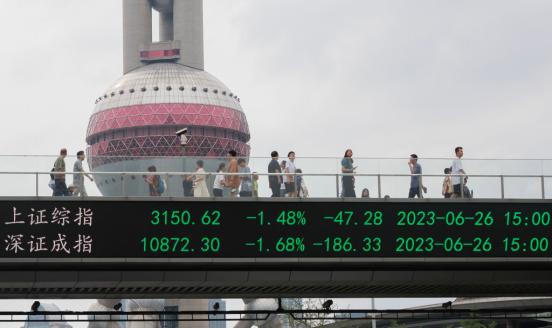Coronavirus recovery: invest rainy day savings to boost Hong Kong’s economy
The Hong Kong government might want to consider diversifying its economy by using part of the savings earmarked for rainy days. Beyond cushioning the

This article originally appeared in the South China Morning Post.
Hong Kong’s GDP declined by 9 per cent in the second quarter, but this figure should be read in the context of a worldwide collapse in GDP growth during the Covid-19 pandemic. Singapore’s economy, probably the most similar to Hong Kong in terms of structure, experienced a much bigger decline during the same period.
Both economies are similarly open, which means the restrictions in international mobility stemming from measures taken to control the pandemic have halted the economy. In addition, increasing strategic competition between the United States and China has hurt both Singapore and Hong Kong, with more noticeable consequences but a smaller economic deceleration for the latter.
Hong Kong’s economic performance in 2020 comes after an already difficult 2019. The city was in recession while virtually the rest of Asia was growing positively before the pandemic hit.
Last year’s recession did not prompt a clear policy response from the government, though. A series of tiny fiscal stimulus packages added up to less than 1 percentage point of GDP. Meanwhile, nothing was done on the monetary and exchange rate side, given Hong Kong’s tight link to the US dollar through a currency board regime.
The pandemic has brought about a bolder stimulus package, but it is still limited compared to most developed economies. Things need to change, and quickly.
It seems clear that additional government support is both warranted and desperately needed. One key objective should be to support small and medium-sized enterprises so they can retain their workers.
The second objective is to protect households’ consumption levels so the retail sector – or at least part of it – can survive the shock of a longer period without customers. The need for an additional stimulus package can be understood in the context of the further reduced domestic mobility we should expect in the third quarter, similar to what happened in Singapore in the second quarter with the circuit-breaker measures and corresponding economic downturn.
In addition, the possible extension of quarantine rules for international travellers until the end of the year could be the final nail in the coffin for Hong Kong retailers and, thereby, retail employment.
On the positive side, the financial sector has proved extremely resilient amid the difficulties Hong Kong is experiencing. Even if finance continues to be relatively shielded thanks to the large number of IPOs and bond issuances since 2019, though, the reality is that one sector – no matter how important – cannot solve the problem.
This is because the gains from the financial sector may not be able to cover declines in the retail and hospitality sectors, among others. More importantly, Hong Kong does not have the redistribution mechanisms through fiscal policy to do so.
Finance can slow the larger collapse in Hong Kong’s overall economic activity, which is welcome news, but it cannot help those in other sectors. This dualism is worrying for two reasons. It could exacerbate Hong Kong’s income distribution problems, as well as making the Hong Kong economy excessively dependent on a single sector – finance.
This is why the Hong Kong government might want to consider diversifying its economy by using part of the large fiscal savings accumulated for rainy days. Beyond cushioning the negative impact of Covid-19 on SMEs and households, it is one more reason to spend.
One example which comes to mind is the €750 billion (US$881.2 billion) recovery fund recently set up by the European Union. The fund aims to “save the day” by supporting the sectors most severely hit by the pandemic as well as “save the future” by investing in high-productivity sectors. The EU has chosen green energy and digitisation among its investment targets.



